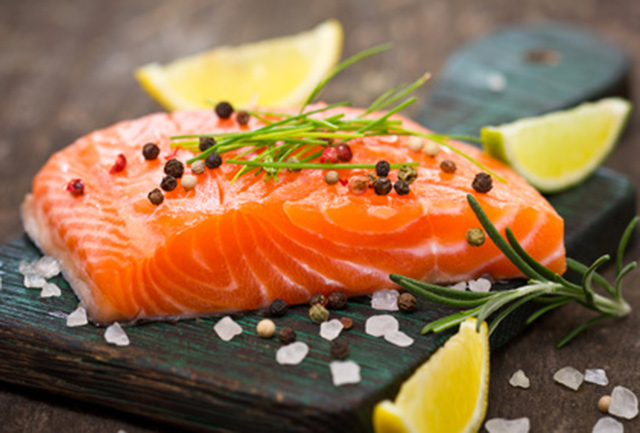The term cancer describes a group of over 100 diseases. Cancers typically develop because of abnormal cells that grow and spread out of control. It is the second leading cause of death in America just behind heart disease.
While there is no official cure, scientists are researching tirelessly to find ways to treat and eradicate cancer. Breakthroughs are being made all the time. New research from the University of Freiburg shows that a toxin from salmon may fight cancer.
The researchers have solved the mechanisms behind this fish toxin that could be used in the future to treat cancer. The study abstract states:
To summarize, the scientists were able to find a toxin in fish that is essential for attacking bacteria, and turning off processes in the fish including cell division and the spreading of tumors.
The researchers then injected the toxin (Afp18) into zebra fish embryos. The result was that cell division was blocked and the fish embryos did not develop. The study abstract continues:
The study showing that a toxin from salmon may fight cancer was published in the journal Nature Communications.
Note: None of the information in our website is intended to diagnose, treat, cure or prevent any illness or disease. The content on our website is for educational purposes only.
DON’T FORGET to sign up for our weekly newsletter to get our latest articles, updates, free recipes and giveaways.
Mayo Clinic may have made a major breakthrough in stopping cancer.
Vegetarians who eat fish have lower colon cancer risk.
Tomatoes may reduce kidney cancer risk.
REFERENCES:
1. “Uni Freiburg: Toxin from Salmonid Fish Has Potential to Treat Cancer.” AlphaGalileo. Albert-Ludwigs-Universität Freiburg, 24 July 2015. Web. 31 July 2015.
2. “Tyrosine Glycosylation of Rho by Yersinia Toxin Impairs Blastomere Cell Behaviour in Zebrafish Embryos.” Nature.com. Nature Publishing Group, 20 July 2015. Web. 31 July 2015.
3. “What Is Cancer?” American Cancer Society. American Cancer Society, n.d. Web. 31 July 2015.
4. “The Top 10 Leading Causes of Death in the US.” Medical News Today. MediLexicon International, n.d. Web. 31 July 2015.

















